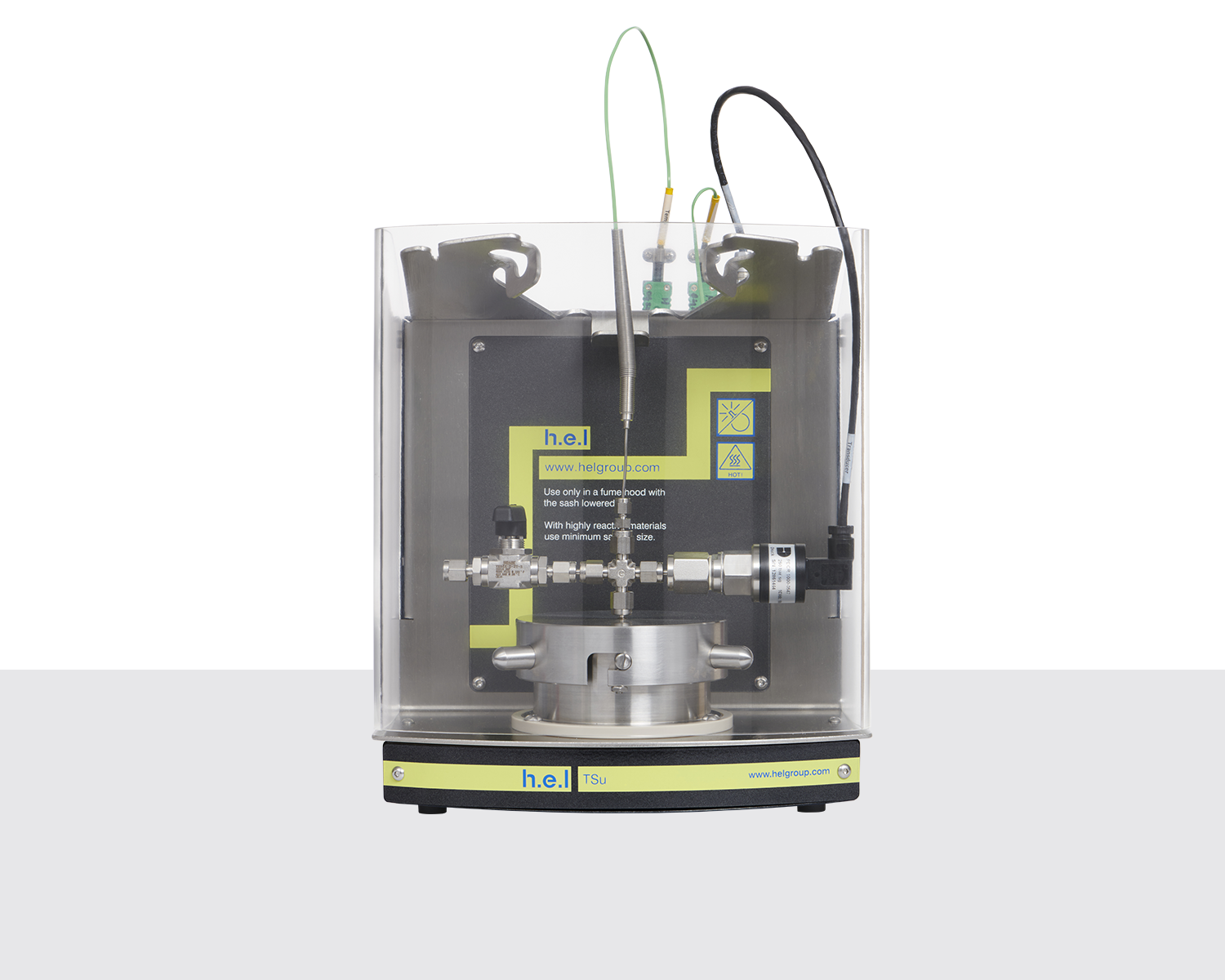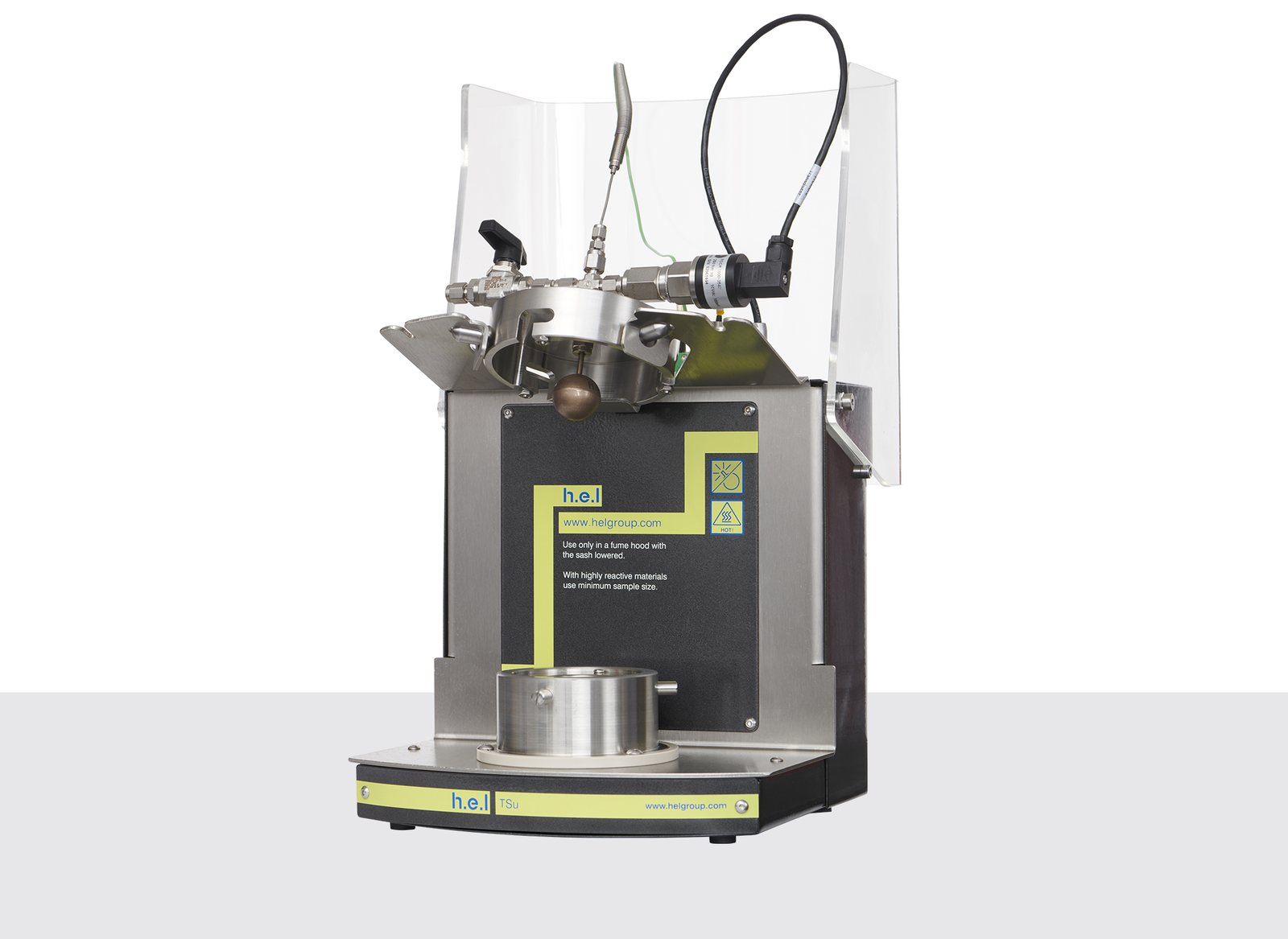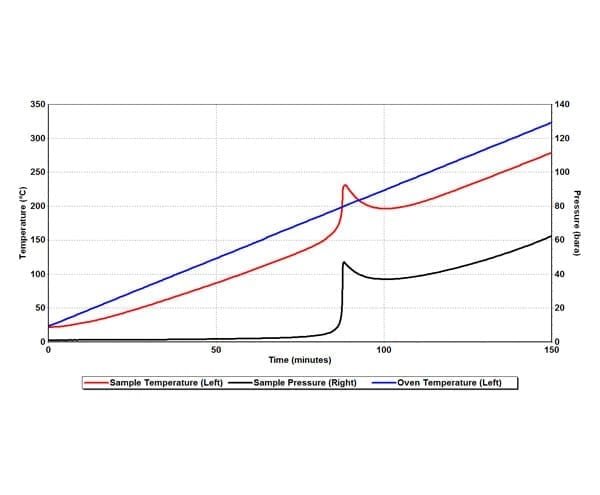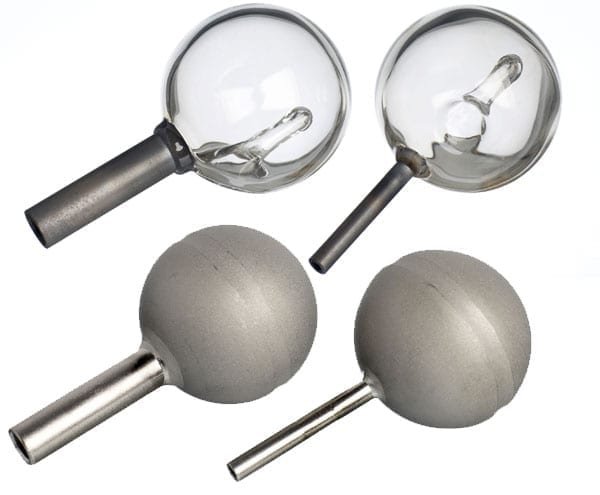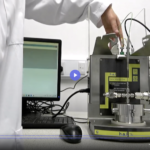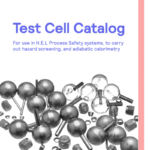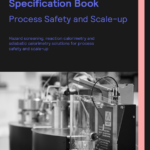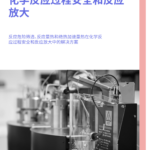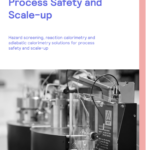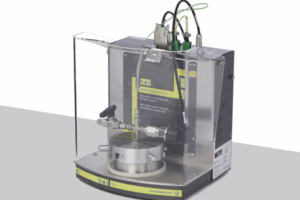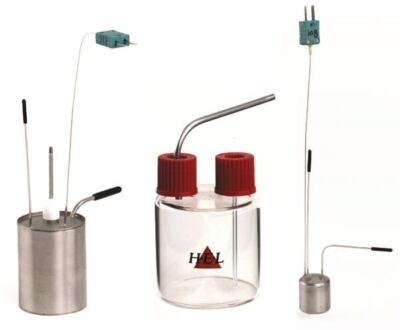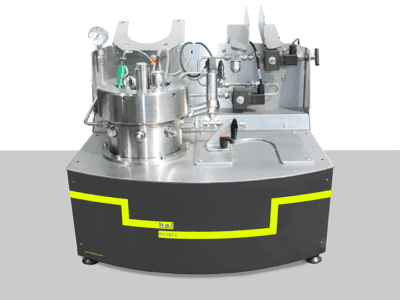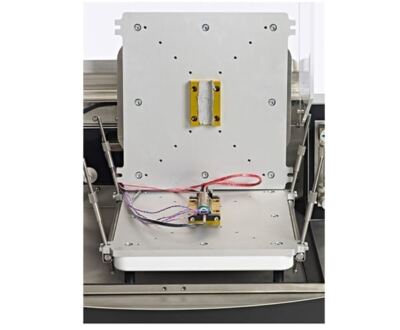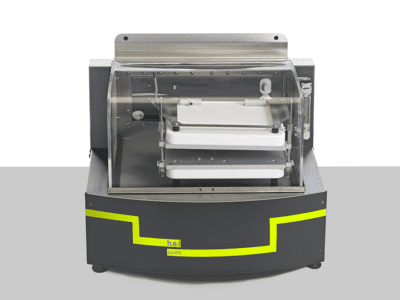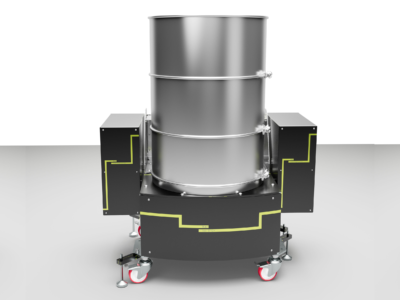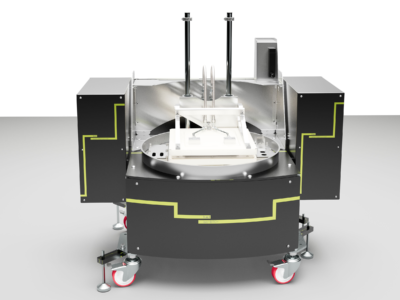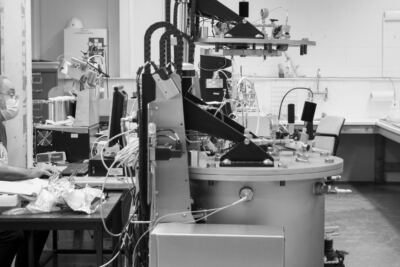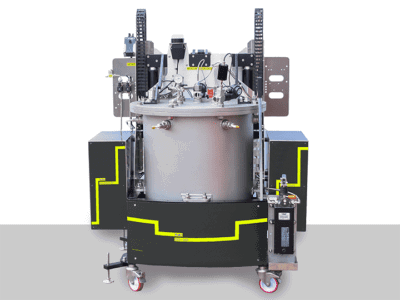TSu | Thermal and Pressure Hazard Screening Platform
The fast screening of thermal and pressure hazards can be performed with the Thermal Screening Unit (TSu). It typically uses samples of 0.5 to 5g to generate both temperature and pressure data, and hence can be considered a better alternative to classical DSC/DTA methods.
Process Safety and Scale Up Specifications
Industries and Applications
Thermal Stability Testing - of APIs, Agrochemicals, propellents
Evaluates decomposition temperatures, onset points, and thermal runaway risks of chemical substances.
Thermal Hazard & Process Safety Solutions
Identify and Mitigate Thermal and Pressure Hazards.
Applications
The TSu typically finds application in:
- Thermal reaction screening of reaction hazards in process scale-up
- thermal stability studies on the reaction waste stream
This is due to its ability to characterize sample pressure changes in addition to thermal behavior, and its capability in supporting relatively large sample measurements.
For effective reaction hazard screening, two critical pieces of data are needed:
- the onset temperature (Td) of the reaction- where the exotherm is detected
- the pressure generated by the resultant runaway
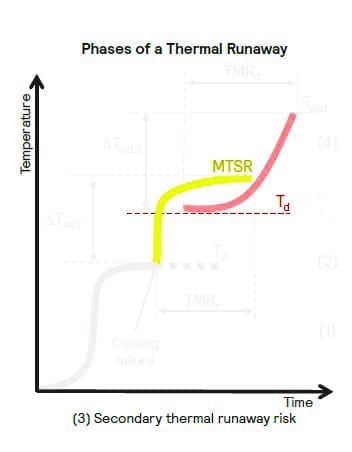
If the MTSR (Maximum Temperature of the Synthesis ) is greater than the onset temperature (Td) of a component within the reaction mix, an undesired side reaction or decomposition may be triggered, possibly leading to a secondary thermal runaway.
In addition to considering thermal stability, it is also vital to screen for pressure hazards. Some of the most hazardous reaction mixes are those which involve the production of non-condensable gases. The TSu provides critical information on the associated pressure change, which is vital for assessing the over-pressurization hazard.
The TSu’s ability to support relatively large volume measurements (0.5 ml to 10 ml), enables representative samples of the reaction mix to be screened and reliable data to be determined for the reactants, intermediates, and products in the reaction mix. The test cells are available in a variety of materials, enabling a range of sample types to be tested. The test cells are also fully compatible with the Phi-TEC I and Phi-TEC II. This facilitates data comparison and method transfer between the instruments, should the initial hazard assessment on the TSu highlight that a secondary thermal runaway is likely, and that it is necessary to screen the hazard more thoroughly adiabatically.
Technical Literature
The following is a list of supporting Technical Literature.
Creating Process Safety Data Sheets for Safe Scale-Up in Pharma/API Production
Publications
The following are a list of some technical publications which highlight the use of the equipment.
A detailed kinetic model for the thermal decomposition of hydroxylamine
Gianmaria Pio, Paolo Mocellin, Chiara Vianello, Ernesto Salzano
01-Aug-2021
https://doi.org/10.1016/j.jhazmat.2021.125641(Subscription or purchase maybe required for full access)
Continuous Safety Improvements to Avoid Runaway Reactions: The Case of a Chloro-Thiadiazole Intermediate Synthesis toward Timolol
Alessandro Agosti, Silvia Panzeri, Federico Gassa, Massimo Magnani, Giulia Forni, Marco Quaroni, Lazzaro Feliciani and Giorgio Bertolini
19-May-2020
https://doi.org/10.1021/acs.oprd.0c00048(Subscription or purchase maybe required for full access)
Explosion Hazards of Sodium Hydride in Dimethyl Sulfoxide, N,N-Dimethylformamide, and N,N-Dimethylacetamide
Qiang Yang, Min Sheng, James J. Henkelis, Siyu Tu, Eric Wiensch, Honglu Zhang, Yiqun Zhang, Craig Tucker, and David E. Ejeh
10-Aug-2019
https://doi.org/10.1021/acs.oprd.9b00276(Subscription or purchase maybe required for full access)
Thermal behaviour of Peracetic Acid for the epoxydation of vegetable oils in the presence of catalyst
Chiara Vianello, Ernesto Salzano, Giuseppe Maschio
01-May-2018
https://doi.org/10.1016/j.psep.2018.03.030(Subscription or purchase maybe required for full access)
Kinetics and safety analysis of peracetic acid
C Vianello, E Salzano, G Maschio
01-Jan-2016
https://www.researchgate.net/profile/Chiara-Vianello/publication/305375394_Kinetics_and_Safety_Analysis_of_Peracetic_Acid/links/58ad711f92851c3cfda21ec8/Kinetics-and-Safety-Analysis-of-Peracetic-Acid.pdf(Subscription or purchase maybe required for full access)
Safety Parameters and Preliminary Decomposition Kinetic of Organo-Peroxy Acids in Aqueous Phase
Chiara Vianello, Ernesto Salzano , Giuseppe Maschio*
01-May-2015
https://doi.org/10.3303/CET1543396(Subscription or purchase maybe required for full access)
Thermal Decomposition Analysis and Safety Study on Di-tert-butyl Peroxide
Lv Jiayu, Chen Wanghua, Chen Liping, Tian Yingtao, Sun Xin
01-Oct-2012
https://doi.org/10.1016/j.proeng.2012.08.054(Subscription or purchase maybe required for full access)
2-Bromo-3-(cyclohexyloxy)acrylaldehyde: An Isolable Enol Ether of Bromomalonaldehyde Suitable for Use in the Manufacture of Imidazolecarboxaldehydes
Terrence J. Connolly*, Michael W. Disharoon, Vladimir Dragan, Joseph J. Lewis, Peter Wehrenberg, and Ralph Zhao
21-Oct-2010
http://pubs.acs.org/doi/pdf/10.1021/op100156y?src=recsys(Subscription or purchase maybe required for full access)
Aminodifluorosulfinium Salts: Selective Fluorination Reagents with Enhanced Thermal Stability and Ease of Handling
Alexandre L’Heureux, Francis Beaulieu, Christopher Bennett, David R. Bill, Simon Clayton, François LaFlamme, Mahmoud Mirmehrabi, Sam Tadayon, David Tovell, and Michel Couturier
21-Apr-2010
https://doi.org/10.1021/jo100504x(Subscription or purchase maybe required for full access)
A Convenient and Stable Synthon for Ethyl Azide and Its Evaluation in a [3 + 2]-Cycloaddition Reaction under Continuous-Flow Conditions
Rob Tinder, Roger Farr, Richard Heid, Ralph Zhao, Randy S. Rarig, Jr., and Thomas Storz
28-May-2009
https://doi.org/10.1021/op900078t(Subscription or purchase maybe required for full access)
Safety Concerns Regarding the Transportation of Organic Powders on Dry Ice: How CO 2 Adsorption Can Lead to Powder Spills
Wim Dermaut*, Jan van Dun, Jan De Kock, Ivan Vervest, and Christine Fannes
01-Jan-2008
https://doi.org/10.1021/op700280z(Subscription or purchase maybe required for full access)
Nitrilase-Catalysed Desymmetrisation of 3-Hydroxyglutaronitrile: Preparation of a Statin Side-Chain Intermediate
Sophie Bergeron, David A. Chaplin, John H. Edwards, Brian S. W. Ellis, Catherine L. Hill, Karen Holt-Tiffin, Jonathan R. Knight, Thomas Mahoney, Andrew P. Osborne, and Graham Ruecroft
01-Apr-2006
https://doi.org/10.1021/op050257n(Subscription or purchase maybe required for full access)
Critical Assessment of Pharmaceutical Processes A Rationale for Changing the Synthetic Route
Mike Butters, David Catterick, Andrew Craig, Alan Curzons, David Dale, Adam Gillmore, Stuart P. Green, Ivan Marziano, Jon-Paul Sherlock, and Wesley White
08-Mar-2006
https://doi.org/10.1021/cr050982w(Subscription or purchase maybe required for full access)
Thermal hazards evaluation for sym-TCB nitration reaction using thermal screening unit (TSU)
A. Nandi, V. Sutar & S. Bhattacharyya
01-Jun-2004
https://akjournals.com/view/journals/10973/76/3/article-p895.xml(Subscription or purchase maybe required for full access)
A Comparison of Reaction Hazard Screening Techniques
D. J. Dale
31-Oct-2002
https://pubs.acs.org/doi/pdf/10.1021/op025592f(Subscription or purchase maybe required for full access)
Downloads
The following are a list of available downloads.

My experience with H.E.L dates since 2005. During these years H.E.L was the provider of the most important lab equipment with the help of which I developed many different API pharmaceutical processes in the companies l worked for including Merck, Pfizer, and Theravance. The versatility of the automated lab reactors (AutoLAB), the ease of use of and the accuracy of the TSu and Simular systems, as well as the flexibility of the PolyBLOCK made my work much easier and accurate. I would like to mention the great relationship I established with the service engineers and the sales people at H.E.L. With their help I was able to customize the software and the hardware of the equipment to our specific needs. This readiness to accommodate each customer’s specific needs gives H.E.L the edge over their competitors and makes them the preferred vendor for pharmaceutical lab equipment.

